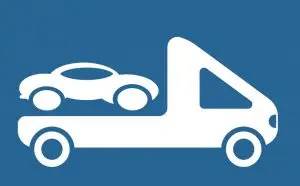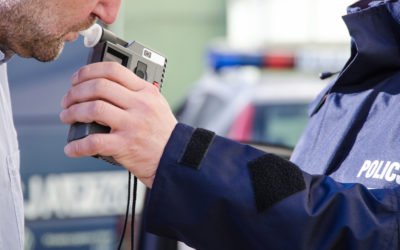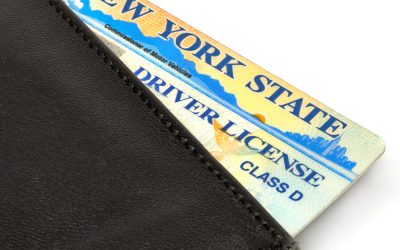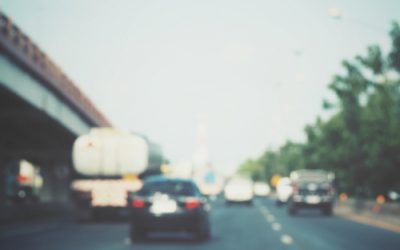
The police may impound your car after an arrest for driving under the influence (DUI). How do you get your car back after being arrested for a DUI in California? You must go to the impound lot with proof of insurance, registration, and driver’s license to get your vehicle back.
Drivers also need to pay impound fees to retrieve their vehicles. You can learn more about these requirements with a Los Angeles DUI lawyer. You can call us or fill out our online contact form for more information about these charges.
How Can You Get Your Car Back After a DUI Arrest?
Drivers arrested for a DUI may face vehicle impoundment along with other criminal penalties, according to the California Driver’s Handbook. You may get your car back from the impound lot if you:
Wait for the Impound Period to Pass
A DUI arrest could result in jail time, fines, community service, and a set impound period for your vehicle. You must wait for this period to expire before getting your motor vehicle out of the impound lot.
A criminal defense lawyer may provide information about the exact length of the impound period.
Provide Proof of Registration
Proof of registration proves you own the motor vehicle you want from the impound lot. Note that the lot will only release a vehicle to a sober driver.
If the car you were driving was not yours, the registered owner has to get it. The good news is the registered owner can get their car right away—they don’t have to wait for a court-ordered impound period to pass. The bad news is they will still have to pay the impound fees.
Provide Proof of Insurance
You must provide evidence of insurance before getting back your motor vehicle. Driving without insurance is against the law in California.
Bring a Driver’s License
You need a valid driver’s license to get your motor vehicle. The police officer may provide you with a temporary license at the time of your arrest. Depending on how long it takes to get your vehicle, you may also bring a restricted license with you.
Pay for Impound Fees
You will owe a fee for every day the vehicle is impounded in addition to the general impound fee charged to every vehicle. The longer you wait to reclaim your car, the more it will cost.
The amount you can expect will vary based on where the police impounded your vehicle. Some companies will charge significantly more than others.
You can only get your car released from the impound lot once you pay these fees; however, impound fees are not the only costs associated with a DUI in California.
Do the Police Always Impound a Car After a DUI?
Police officers do not always impound a motor vehicle after a DUI arrest. They may allow another (sober) driver to take the vehicle from you and drive it home, or they may impound the car.
When the police impound a car, the government holds onto it for you. You can get it back but must pay very expensive fees. The following factors determine whether you lose your vehicle:
Your DUI Record
The officers could look at your criminal record when they arrest you. If you’ve had a prior DUI within the last ten years, they are supposed to impound your car.
But this rule is not always enforced. Police may not take the time to look at your criminal record during the arrest, forget about the rule, or simply feel generous.
The Officer’s Attitude
The officer’s attitude is even more significant if it is your first DUI. In this case, the law does not require them to impound your vehicle. But they have to do something with it, and confiscating it is an option they can choose.
Officially, officers should impound a vehicle if it is not parked safely and legally when they arrest you. Since many arrests involve pulling you over on a busy roadway, “safely” is at an officer’s discretion.
If the officer wants to be friendly, they might offer to drive the car a short distance and park it for you. Their decision depends almost entirely on how respectful you have been. If you argue with the officer, they will probably be “unable” to spot any safe, legal parking place anywhere around.
Can You Forfeit Your Car for a Los Angeles DUI Conviction?
In some cases, you could lose ownership of your car entirely through something called asset forfeiture, and it is not typical for DUI charges. The court usually uses asset forfeiture if someone used the asset (your vehicle) to commit a crime. In DUI cases, asset forfeiture may come into play if:
- Your DUI involves illegal drugs, particularly if the police found some of the drugs in the car when they searched it.
- Your car killed someone in an accident related to your DUI.
The court may also keep your car if you have too many prior DUIs. If you have three DUIs in seven years, the court can declare your vehicle a “nuisance” and take it. You can discuss any criminal charges you face with a DUI lawyer.
What Happens to Your Car at a DUI Checkpoint?
DUI checkpoints are constitutional and can arrest dozens of allegedly drunk drivers in one night. California uses these checkpoints as part of its Impaired Driver Enforcement Programs.
Generally, if the police arrest you at a DUI checkpoint, they will temporarily park your car nearby. Someone can come to pick it up, but only if they get there before the checkpoint ends. After that, the police will impound your car.
The person who picks up the car must be the vehicle’s registered owner. If you are the registered owner, police may allow you to designate someone who will get it. But since they have so many cars to deal with at a checkpoint, this is unlikely.
Can Someone Else Drive the Car?
An officer may also allow another driver to take the car for you after an arrest for drunk driving. However, this option is only standard in DUI checkpoints. In a routine roadside stop, the officer will not likely wait for a driver to get your car.
You can contact a lawyer if they take your vehicle to find out how to get your car back after being arrested for a DUI in California.
What Happens to Your Vehicle After a DUI Accident?
If your DUI involves an accident, the rules change. It depends mainly on the condition of your vehicle and the severity of the accident.
If someone can safely drive your vehicle, and no one is seriously hurt, it depends on how nice the officer is and whether there is somewhere nearby to park it. However, if the accident is severe, the police may consider it a crime scene. Police will want the vehicle for evidence. It will almost certainly be towed and impounded.
If the accident damages your vehicle so severely that it can’t run, the police officers’ highest priority is clearing the roadway. They will have your car towed and:
Impounded as Evidence
Police can order any vehicle impounded if they need it for evidence or if they believe it contains evidence. They may make this decision if a DUI involves drugs or if someone dies in a DUI accident.
Impounded by the Court
Finally, the court can order that your car impounded as part of a DUI sentence:
- For a first-time DUI, the court may impound your vehicle for up to 30 days or not at all
- For a second DUI, the court may impound your vehicle for up to 30 days
- In a third or subsequent DUI, the court may impound your vehicle for up to 90 days
A criminal defense attorney can provide more information about these penalties and how to get your car back after being arrested for a DUI in California.
Find Out How to Get Your Impounded Car Back
How do you get your car back after being arrested for a DUI in California? You must wait out the impound period and then go to the impound lot with your restricted license or temporary driver’s license, insurance information, proof of registration, and money to pay storage fees.
You can discuss these steps in more detail when you call or complete our online contact form.






